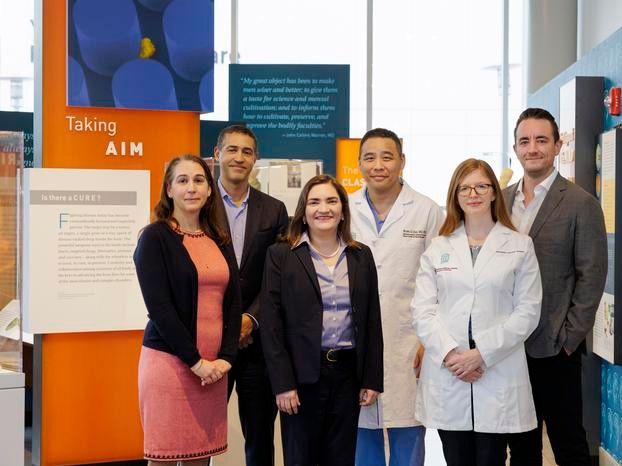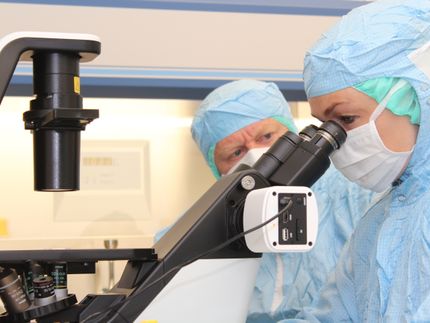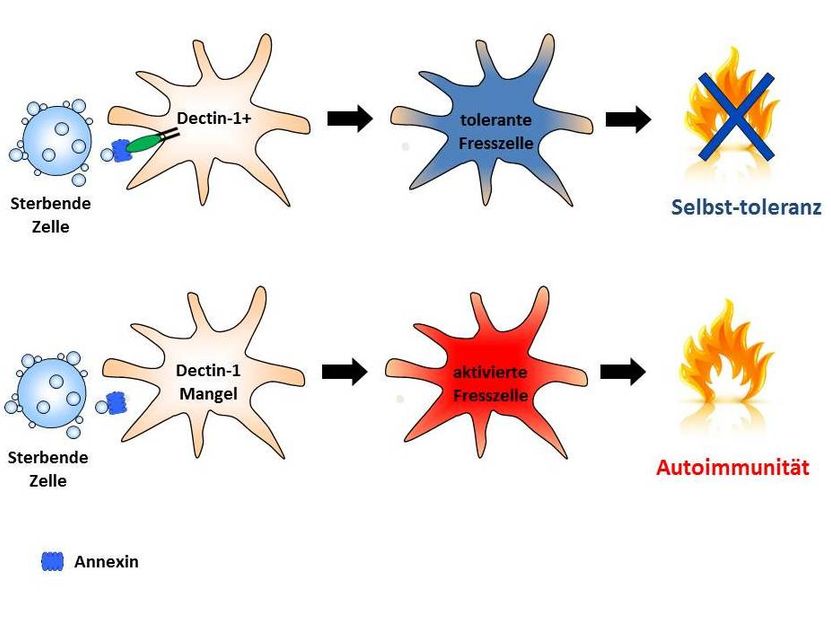‘Dramatic and rapid’ regression of glioblastoma after next generation CAR-T therapy
Researchers took a new approach to CAR-T, engineering CAR-TEAM cells to treat mixed cell populations within tumors
A collaborative project to bring the promise of cell therapy to patients with a deadly form of brain cancer has shown dramatic results among the first patients to receive the novel treatment. In a paper published in The New England Journal of Medicine, researchers from the Mass General Cancer Center, a member of the Mass General Brigham healthcare system, shared the results for the first three patient cases from a phase 1 clinical trial evaluating a new approach to CAR-T therapy for glioblastoma (GBM). The trial, known as INCIPIENT, is designed to evaluate the safety of CARv3-TEAM-E T cells in patients with recurrent GBM. Just days after a single treatment, patients experienced dramatic reductions in their tumors, with one patient achieving near-complete tumor regression. In time, the researchers observed tumor progression in these patients, but given the strategy’s promising preliminary results, the team will pursue strategies to extend the durability of response.

Members of the Mass General Cancer Center INCIPIENT team (from left to right): Elizabeth Gerstner, MD, William Curry, MD, Marcela Maus, MD, PhD, Bryan Choi, MD, PhD, Kathleen Gallagher, PhD and Matthew Frigault, MD.
Kate Flock/MGH
“This is a story of bench-to-bedside therapy, with a novel cell therapy designed in the laboratories of Massachusetts General Hospital and translated for patient use within five years, to meet an urgent need,” said Bryan Choi, MD, PhD, neurosurgeon and associate director of the Center for Brain Tumor Immunology and Immunotherapy, Cellular Immunotherapy Program, Mass General Cancer Center and Department of Neurosurgery. “The CAR-T platform has revolutionized how we think about treating patients with cancer, but solid tumors like glioblastoma have remained challenging to treat because not all cancer cells are exactly alike and cells within the tumor vary. Our approach combines two forms of therapy, allowing us to treat glioblastoma in a broader, potentially more effective way.”
The new approach is a result of years of collaboration and innovation springing from the lab of Marcela Maus, MD, PhD, director of the Cellular Immunotherapy Program at the Mass General Cancer Center, Paula O’Keeffe chair in Oncology, and faculty of the Krantz Family Center for Cancer Research. Maus’ lab has set up a team of collaborating scientists and expert personnel to rapidly bring next generation genetically modified T cells from the bench to clinical trials in patients with cancer.
“We’ve made an investment in developing the team to enable translation of our innovations in immunotherapy from our lab to the clinic, to transform care for patients with cancer,” said Maus. “These results are exciting, but they are also just the beginning—they tell us that we are on the right track in pursuing a therapy that has the potential to change the outlook for this intractable disease. We haven’t cured patients yet, but that is our audacious goal.”
Studies like this one show the promise of cell therapy for treating incurable conditions. Mass General Brigham’s Gene and Cell Therapy Institute, where Maus is Associate Head & Head of Cell Therapies, is helping to translate scientific discoveries made by researchers into first-in-human clinical trials and, ultimately, life-changing treatments for patients. The Institute’s multidisciplinary approach sets it apart from others in the space, helping researchers to rapidly advance new therapies and push the technological and clinical boundaries of this new frontier.
CAR-T therapy works by using a patient's own cells to fight cancer—it is known as the most personalized way to treat cancer. A patient's cells are extracted, modified to produce proteins on their surface called chimeric antigen receptors, and then injected back into the body to target the tumor directly. Cells used in this study were manufactured by the Connell and O’Reilly Families Cell Manipulation Core Facility of the Dana-Farber/Harvard Cancer Center.
CAR-T therapies have been approved for the treatment of blood cancers but the therapy’s use for solid tumors is limited. Solid tumors contain mixed populations of cells, allowing some cancer cells to continue to evade the immune system’s detection, even after treatment with CAR-T. Maus’s team is working to overcome this challenge of tumor heterogeneity with an innovative strategy that combines two previously separate strategies: CAR-T and bispecific antibodies, known as T-cell engaging antibody molecules (TEAMs). The version of CAR-TEAM for glioblastoma is designed to be directly injected into a patient’s brain.
Maus and colleagues previously developed CAR-T cells to target a common cancer mutation known as EGFRvIII, but when that alone had limited effects, her team engineered these CAR-T cells to deliver TEAMs against wild-type EGFR, which is not detected in normal brain tissue but is expressed in more than 80 percent of cases of GBM.
The combination approach showed promise in preclinical models of glioblastoma, encouraging the research team to pursue clinical translation. In collaboration with Mass General neurosurgeons and neuro-oncologists, including Elizabeth Gerstner, MD, and William Curry, MD, as well as specialists in cell therapy delivery, Matthew Frigault, MD, and immunotherapy monitoring, Kathleen Gallagher, PhD, the team launched INCIPIENT (ClinicalTrials.gov number, NCT05660369), a non-randomized, open label, single-site Phase 1 study.
Three patients were enrolled in the study between March 2023 and July 2023. Patients’ T cells were collected and transformed into the new version of CAR-TEAM cells, which were then infused back into each patient. Patients were monitored for toxicity throughout the duration of the study.
All patients had been treated with standard-of-care radiation and temozolomide chemotherapy and were enrolled in the trial after disease recurrence:
- A 74-year-old man had his tumor regress rapidly, but transiently after a single infusion of the new CAR-TEAM cells. Blood and cerebrospinal fluid from the patient showed a decrease in EGFRvIII and EGFR copy numbers, eventually becoming undetectable.
- A 72-year-old man was treated with a single infusion of CAR-TEAM cells. Two days after receiving CAR-TEAM cells, an MRI showed a decrease in the tumor’s size by 18.5 percent. By day 69, the tumor had decreased by 60.7 percent, and the response was sustained for over 6 months.
- A 57-year-old woman was treated with CAR-TEAM cells. An MRI five days after a single infusion of CAR-TEAM cells showed near-complete tumor regression.
The patients tolerated the infusions well, though nearly all had fevers and altered mental status soon after infusion, as was expected from an active CAR-T therapy administered into the fluid around the brain. All patients were observed in the hospital before discharge.
The authors note that despite the remarkable responses among the first three patients, they observed eventual tumor progression in all the cases, though in one case, there was no progression for over six months. Progression corresponded in part with the limited persistence of the CAR-TEAM cells over the weeks following infusion. As a next step, the team is considering serial infusions or preconditioning with chemotherapy to prolong the response.
“We report a dramatic and rapid response in these three patients. Our work to date shows signs that we are making progress, but there is more to do,” said co-author Elizabeth Gerstner, MD, a neuro-oncologist in the Department of Neurology at Massachusetts General Hospital.
Original publication
Bryan D. Choi, Elizabeth R. Gerstner, Matthew J. Frigault, Mark B. Leick, Christopher W. Mount, Leonora Balaj, Sarah Nikiforow, Bob S. Carter, William T. Curry, Kathleen Gallagher, Marcela V. Maus; "Intraventricular CARv3-TEAM-E T Cells in Recurrent Glioblastoma"; New England Journal of Medicine, 2024-3-13





























































